Graham Reid | | 4 min read
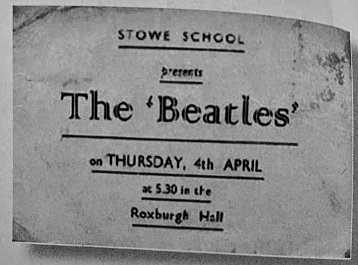
As Elsewhere has previously noted, among the many factors in the Beatles' early career were chance, coincidence and good luck
What were the odds, for example, of them in their earliest days in Hamburg being befriended by German students with an interest in photography. But because of Astrid Kirchherr and Jurgen Volmer we have a few dozen quite exceptional and artistic photographs of the young Lennon, McCartney and Harrison in the years before fame alighted on them.
However for musical group there were remarkably few recordings of them before Beatlemania: there's their own copy of some demo tapes, the chance recording of Lennon's Quarrymen on the very day he would later meet McCartney (terrible quality), the Decca audition and the 1962 tapes of them on their final appearance at the Star Club in Hamburg.
Once fame came however there were plenty of people with tape recorders, however most of the recordings have the Beatles buried behind the screams of their young audience.
In a remarkable and utterly unexpected discovery, a recording has appeared of the Beatles playing at Stowe School in Buckinghamshire on Thursday April 4, 1963.
 And because it was a boys' school there is no screaming and so the Beatles can be heard – admittedly the quality so far revealed is pretty poor – on what is now considered the earliest known full recording of The Beatles playing a live concert in Britain.
And because it was a boys' school there is no screaming and so the Beatles can be heard – admittedly the quality so far revealed is pretty poor – on what is now considered the earliest known full recording of The Beatles playing a live concert in Britain.
It happened just a fortnight after their debut album Please Please Me had been released and the single of that name – which had followed Love Me Do – was dropping down the charts.
The Beatles were big and on their way to being bigger, and on this recording we get a sense of what they were like on stage at that time.
The hour-long quarter-inch recording was made by 15-year-old John Bloomfield, a student at the boarding school where they had been engaged for a fee of 100 pounds to play in the school's theatre.
 They'd been booked by a pupil David Moores, who'd written to Brian Epstein and whose family owned the Littlewoods football pools and retail business. And were therefore a big deal in Liverpool, which Epstein knew.
They'd been booked by a pupil David Moores, who'd written to Brian Epstein and whose family owned the Littlewoods football pools and retail business. And were therefore a big deal in Liverpool, which Epstein knew.
The Beatles, Epstein and their road manager (Neil Aspinall at this time) were taken to the school a little less than two hours from London where the group had been recording for the BBC.
They played two half-hour sets, 22 songs in total, favouring material from their new album, many of the songs already familiar to the boys who shouted out requests and the band acknowledged them.
They opened with I Saw Her Standing There then immediately went into Chuck Berry's Too Much Monkey Business.
Speaking to the BBC about the importance of the recording, Beatle expert Mark Lewisohn said, "The opportunity that this tape presents, which is completely out of the blue, is fantastic because we hear them just on the cusp of the breakthrough into complete world fame.
"And at that point, all audience recordings become blanketed in screams.
 "So here is an opportunity to hear them in the UK, in an environment where they could be heard and where the tape actually does capture them properly, at a time when they can have banter with the audience as well.
"So here is an opportunity to hear them in the UK, in an environment where they could be heard and where the tape actually does capture them properly, at a time when they can have banter with the audience as well.
"I think it's an incredibly important recording, and I hope something good and constructive and creative eventually happens to it.
"I didn't even know this tape existed until you told me about it, and I think I had to pick myself up off the floor."
 Afterwards, the band were taken for a meal in the tuck shop and were shown Bloomfield's typically bare dorm room, it's raw quality surprising the band who expected something more palatial at an expensive boarding school.
Afterwards, the band were taken for a meal in the tuck shop and were shown Bloomfield's typically bare dorm room, it's raw quality surprising the band who expected something more palatial at an expensive boarding school.
They also visited the headmaster's study and had a number of photographs taken before they went to the Green Man in the nearby village of Syresham to spend the night.
The next day they were back in London and . . .
And soon enough Beatlemania began in earnest.
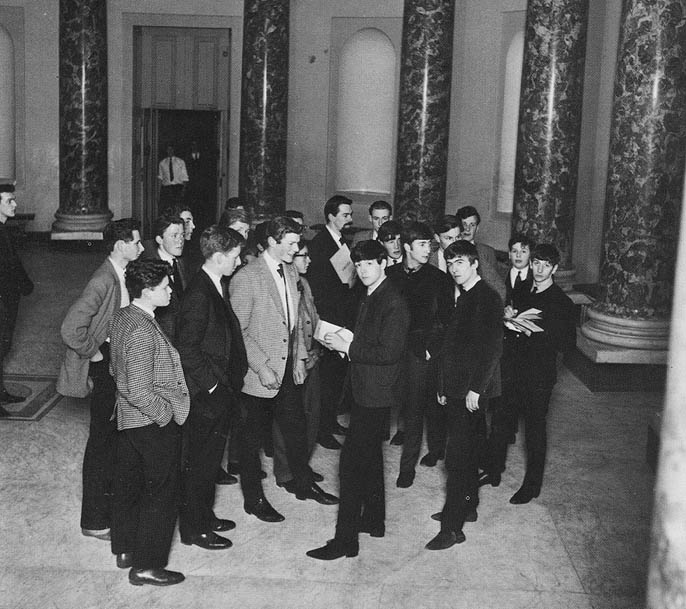 But by chance, good luck and coincidence there is a recording of them before all that happened, playing to an appreciative audience and able to hear each other and the requests from the crowd.
But by chance, good luck and coincidence there is a recording of them before all that happened, playing to an appreciative audience and able to hear each other and the requests from the crowd.
Given the state of current technology it wouldn't be surprising if the tape can be cleaned up and re-presented in better audio.
Although even if it is, it's release would have to be negotiated through the phalanx of lawyers and accountants at Apple, the estates of Harrison and Lennon, and get the approval of Ringo and McCartney.
Don't hold your breath.
But at least you can hear something of it on this BBC programme presented by Samira Ahmed which includes interviews with Bloomfield, Lewisohn and others.
Won-two-three-fawwhh.
.

.

.

.

.

.

.
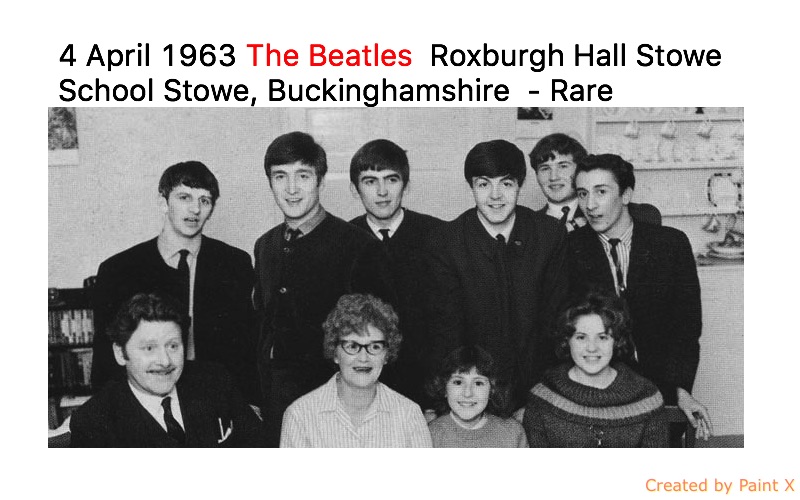


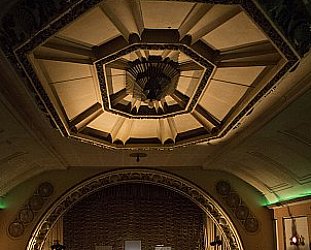

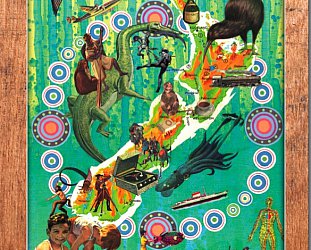
post a comment